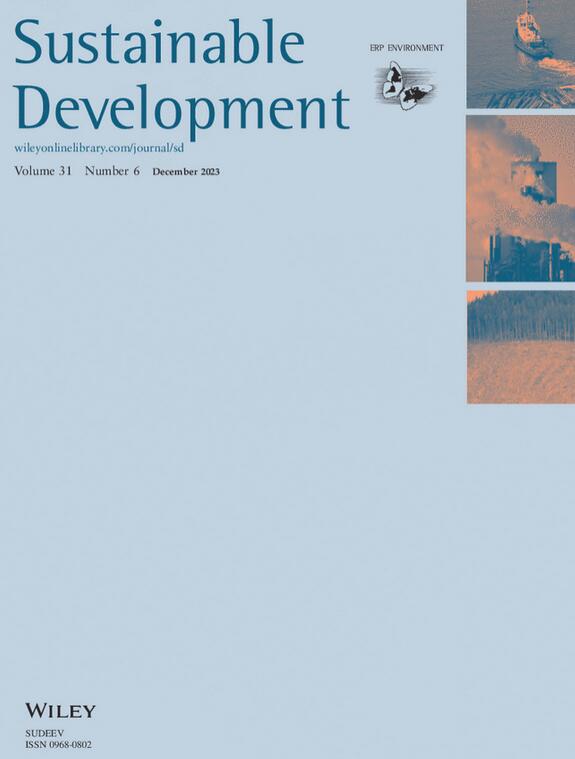Environmental Health Check: How third‐party environmental evaluation project affects corporate environmental responsibility
IF 8.2
1区 环境科学与生态学
Q1 DEVELOPMENT STUDIES
引用次数: 0
Abstract
Third‐party environmental evaluation by environmental organizations can provide an independent professional evaluation of firms' environmental behaviors. Because environmental organizations aim to improve environmental welfare, which reflects value rationality than instrumental rationality. We argue that third‐party environmental evaluation can reduce information asymmetries between central and local governments, and induce local governments to strengthen environmental enforcement, which in turn increases the pressure on polluters. At the same time, third‐party evaluation improves transparency and exposes firms' environmental opportunistic behavior, which increases the pressure on firms to take more responsibility for environmental protection. In an analysis of a large sample of Chinese listed firms over the period 2009–2018, we find that third‐party evaluation from environmental organizations has a positive impact on firms' environmental responsibility. This positive effect is stronger for firms located in regions with weak local protectionism and weaker for firms with less external shareholder monitoring.环境健康检查:第三方环境评估项目如何影响企业环境责任
环保组织的第三方环境评价可以对企业的环境行为进行独立的专业评价。因为环保组织的目标是提高环境福利,体现的是价值理性而非工具理性。我们认为,第三方环境评价可以减少中央政府与地方政府之间的信息不对称,促使地方政府加强环境执法力度,进而增加对污染企业的压力。同时,第三方评价可以提高透明度,揭露企业的环境机会主义行为,从而增加企业的压力,促使其承担更多的环保责任。通过对 2009-2018 年间大量中国上市公司样本的分析,我们发现来自环保组织的第三方评价对企业的环境责任有积极影响。这种积极影响对于位于地方保护主义较弱地区的企业更强,对于外部股东监督较少的企业更弱。
本文章由计算机程序翻译,如有差异,请以英文原文为准。
求助全文
约1分钟内获得全文
求助全文
来源期刊

Sustainable Development
Multiple-
CiteScore
17.30
自引率
11.20%
发文量
168
期刊介绍:
Sustainable Development is a publication that takes an interdisciplinary approach to explore and propose strategies for achieving sustainable development. Our aim is to discuss and address the challenges associated with sustainable development and the Sustainable Development Goals. All submissions are subjected to a thorough review process to ensure that our readers receive valuable and original content of the highest caliber.
 求助内容:
求助内容: 应助结果提醒方式:
应助结果提醒方式:


